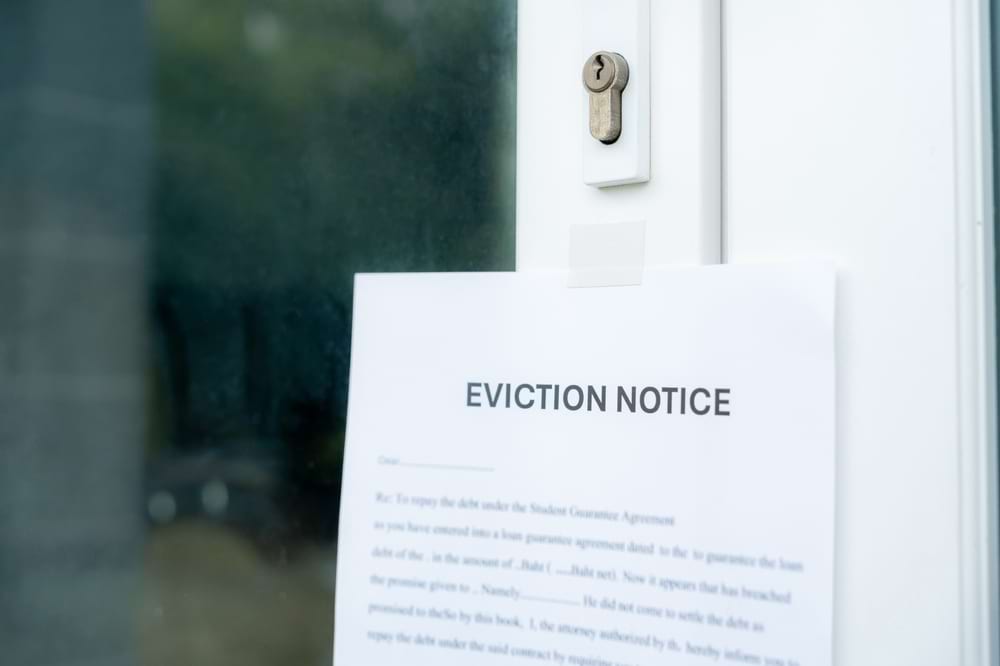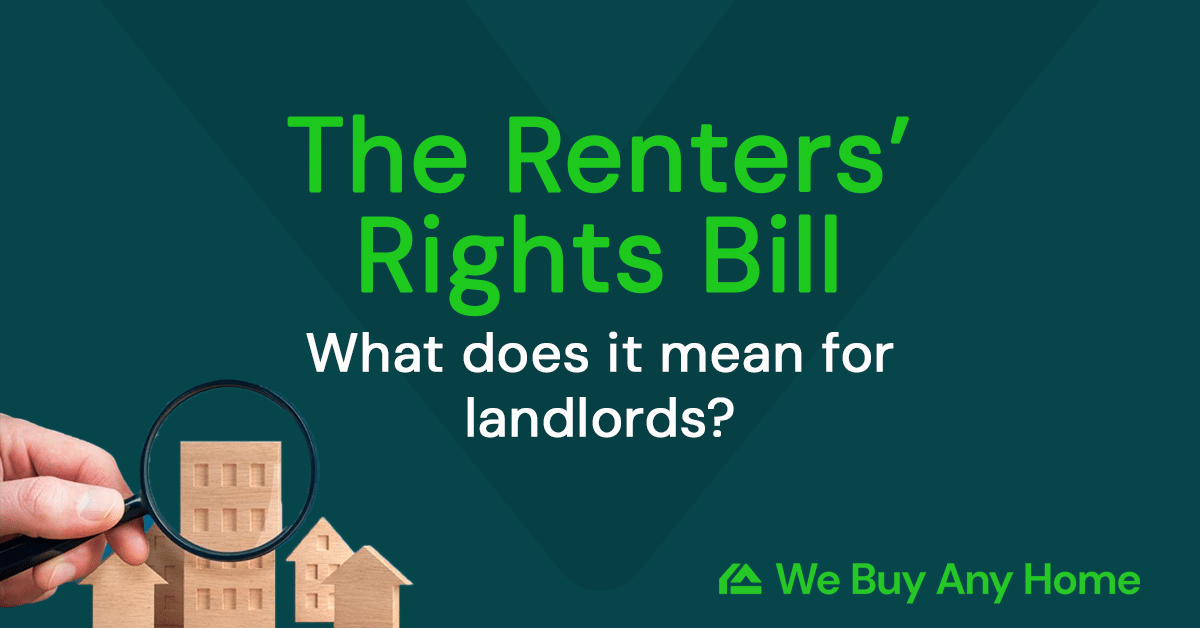The Renters’ Rights Bill is the biggest change to English renting legislation in nearly 40 years.
It officially passed into law, becoming the Renters’ Rights Act, on October 27, 2025.
Landlords now face several new challenges.
Read on to learn what it is, what it includes, and what this could mean for UK landlords.
Background to the bill
The previous government announced that they would abolish Section 21 evictions in 2019.
(These are also known as ‘no-fault evictions’. Landlords don’t need to prove or even claim any fault on the part of the tenant for these. They simply need to issue a Section 21 notice with at least two months’ notice.
Landlords were often used no-fault evictions when they wanted to sell their property without tenants in it. They could simply serve a valid Section 21 notice with two months’ notice for the tenants to leave the property.)
However, this measure was not enforced. Over 100,000 Section 21 evictions have still taken place since then.
The same government then drafted the Renters’ (Reform) Bill 2023. It proposed ending Section 21 evictions and making it easier for landlords to evict anti-social tenants.
When the current government came to office in July 2024, they announced the Renters’ Rights Bill.
Besides abolishing Section 21 evictions, it has a range of other measures, too.
At one point, it was made up of around 250 pages, 149 sections, and six schedules.
So, it’s been difficult even for professional landlords to fully understand each clause well.
It officially passed into law on October 27th, 2025. The prime minister Kier Starmer remarked:
“For too long, millions of renters have lived at the mercy of rogue landlords or insecure contracts, with their futures hanging in the balance. We’re putting an end to that.”
– Kier Starmer, press release (27/10/2025)
Amendment by the House of Lords
In the UK, legislation by the House of Commons is often scrutinised by the House of Lords. This process is often referred to as ‘ping-pong’ within parliament.
In general, most amendments suggested by the House of Lords are not accepted. However, sometimes a compromise is made.
The Renters Rights Bill is no exception. Only one of 77 suggested amendments by the House of Lords has been accepted.
(The amendment in question allows farmers to provide accommodation for both employed and self-employed workers.)
Consequences of not abiding by the bill
Despite its depth and breadth, penalties for breaches of the bill could put many landlords out of business:
- Initial or repeated non-compliance: Up to £7,000
- Serious or repeated non-compliance: Up to £40,000.
Pleading ignorance will not help.
Enforcing the bill is now a duty rather than a discretionary choice for councils. They also keep the money for fines, which incentivises them to impose them.
It’s also important to note that the bill will not be gradually phased in, as many other laws relating to renting have before.
Now that it is law, it i immediately enforceable.
Content of the bill (examples)
Below, we’ve given our best and most up-to-date summary of some of the main we think points landlords should be aware of.
However, we can’t stress enough:
- It’s essential to keep up to date with the latest developments and even interpretations of the bill
- Always seek professional legal advice on matters related to any of the points.
1. Tenancies
The bill removes fixed-term tenancies and assured shorthold tenancies (AST).
Landlords now need to give tenants periodic tenancies with no fixed date.
There are currently approximately 11 million ASTs in the UK. They will immediately become invalid once the bill becomes law.
Many argue that this measure gives landlords less certainty.
Many tenants can now stay in properties longer or indefinitely (as long as they adhere to tenancy terms).
And they now only need to give 2 months’ notice before ending their tenancies. Landlords can’t ask for longer.
2. Evictions
Section 21 evictions enable(d) landlords to evict tenants without giving them a reason and on relatively short notice.
They were useful for when landlords wanted to move into, sell, or renovate the property, for example.
By abolishing Section 21 evictions, the bill limits the ease and flexibility with which landlords can make these decisions.
Evictions not related to tenants’ breach of contract now need to come under Section 8 evictions of the Housing Act 1988.
This means landlords must prove to courts their reasons for needing the property empty. And they can only issue 4-month notices to tenants if:
- The tenant has lived in the property for at least 12 months
- They will not re-let or re-market the property for 12 months.
The bill should, at the very least, reduce the numbers of landlords serving notice on for untrue reasons or being negligible in proving the veracity of their reasons.
3. Discrimination
The Equality Act 2010 made it illegal for landlords to discriminate against nine groups with ‘protected characteristics’ (including the elderly, disabled, religious groups, and more).
The Renters Rights Bill adds two new groups to this list:
- People with children
- People receiving benefits.
This provision covers excluding these groups when marketing property. The phrase ‘No DSS’ (Department of Social Security), for example, can be longer be used.
And terms in mortgages about what kind of tenants landlords can have will no longer be enforceable.
4. Pets
One aspect of the bill that has grabbed headlines is its revision of the rules on tenants having pets.
Landlords are allowed to request no pets whilst marketing properties. But tenants are allowed to ask permission for pets and appeal refusals.
Meanwhile, landlords must give fair consideration of requests and solid grounds for refusals.
(However, they are allowed to require tenants pay pet damage insurance.)
In practice, finding such grounds will likely be quite difficult. So, it might be relatively easy for tenants to simply ignore landlords’ preference on pets once they have moved in.
5. Rent increases
Landlords are still able to raise rents under the bill, but now all rent increases must be initiated using a Section 13 notice (Form 4).
In other words, landlords can no longer simply issue a new tenancy agreement with a revised rent at the end of a fixed term.
Renters’ appeals are now also exclusively handled by the First-tier Tribunal (FTT). It follows that landlords will now need to more diligently prepare for rental raises.
They will likely also need to be more patient, too. The legal process time frame takes longer, and the legal system itself could be pushed to capacity.
There are also a range of other changes around the rules of increasing rent, including:
- Notice periods
- Market rate requirements
- Right to challenge
- Limits on tribunal power.
(Read our blog to learn more about how much landlords can increase rent.)
6. Rent in advance
Previously, landlords could ask for up to 6 months’ rent in advance from tenants.
The Renter’s Rights Bill prevents them from asking for more than one month’s rent in advance.
The aim of this measure is to give access to more tenants to the private renting sector.
It will also prevent tenants without savings from being outcompeted by those with them in securing properties.
7. Bidding wars
Bidding wars over rent are now banned.
Previously, it was possible for landlords initiate or participate in them to gain the highest rental income.
Rental listing prices used in marketing could be used as starting points. Now, they must be adhered to.
Many have speculated that the practical result of this rule could simply be properties being marketed at higher prices.
8. Ombudsman
A Private Rented Sector Landlord Ombudsman Service will now be launched.
All private landlords will be required to sign up for it.
This is notable because it will be the first time all landlords in the country have been added to a centralised database.
Landlords not signed up to it can be fined for marketing their properties.
The Ombudsman will handle tenant complaints and enforcement of rules and penalties. The government claims that it will help speed up tenant-initiated complaints.
9. Decent Homes Standard (DHS)
The Decent Homes Standard will standardise and codify regulations on property conditions.
The government stated intention for this is to “help landlords by clarifying requirements and establishing a level playing field, backed up by consistent enforcement.”
These standards have already existed for public social housing since the early 2000s.
The governments definition includes a range of hazards, including serious (Category 1) hazards and less serious ones.
Motivation behind the bill
There are many laws across the world which resemble the Renters Rights Bill or aspects of it.
For example, the Netherlands has the Affordable Rent Act, which uses a points system to grade most rental properties’ rental rates.
And in France, the maximum deposit for unfurnished properties is one month’s rent (and two months for furnished properties).
Overall, the Renters Rights’ Bill is largely driven by the governments’ desire to:
- Provide more security for renters
- Crackdown on bad landlords.
To achieve this, they want to reform and standardise the private rental sector.
At the same time, alienating private landlords would exacerbate the existing national housing shortage. So, the bill also gives provisions to help landlords in some circumstances.
Unintended consequences?
Whilst the Renters Rights Bill will likely change the landscape of renting significantly, it’s difficult to predict exactly how it will change.
Many landlords and industry commentators argue that the bill may lead to a range of unintended consequences.
For example, landlords without tenants may list their properties at higher rates to cover the risk of being unable to evict tenants or increase rent later.
This may be particularly true of landlords with student tenants. They may need to cover the possibility of students leaving tenancies early and waiting until the following term for new tenants.
(Not being able to take payment upfront from students could also be detrimental, considering their relative inexperience with managing finances.)
Landlords may also be less willing to accept tenants with poor credit scores. Previously, these tenants could reassure landlords by paying more rent upfront.
Potential impact on culture
There could be broader cultural changes, too.
Many landlords might more diligently vet tenants. And the penalties involved may lead to some landlords with less capital leaving the industry.
Larger, more corporate rental companies could gain more power as a result.
Professionalising the sector like this may lead to less personal (and understanding) relationships between landlords and tenants.
Potential impact on rental ecosystem
And there may be a rise in the need for services, such as rent guarantee insurance and guarantor services.
The cost of these may ultimately also be covered by raised rents. A 21% increase in rent in the last three years alone means that this could be very negative for tenants.
Some even fear that the bill could lead to an ‘airbnb-fication’ of some rentals. Tenants may hand in their notice on the first day to gain a guaranteed short stay.
Perspectives: Is the bill good or bad for landlords?
With so much commentary on the Renters Rights Bill, it can be difficult for landlords to gain a clear perspective on its overall impact.
Commentators and organisations have variously described the bill (or aspects of it) as ‘unworkable’, a ‘threat’ to and an ‘attack on’ landlords, and as ‘the wrong solution to the housing crisis’.
Others have claimed that the bill will not have a big impact on most tenancies.
They point to the English Housing Survey 2021-22, which found that only 4% of tenancy endings are initiated by landlords. However, it will have a big impact on these cases.
Many have highlighted the differences in local conditions across the country. This means different areas may experience the bill differently.
And some have even stated that the bill is simply a new normal for the rental industry that most good landlords will adapt to easily.
Wider factors, including the current housing shortage, mean that private sector demand can’t currently be met by social housing.
So, future regulations could be likely to make amendments that suit landlords.
Exiting the rental market
A recent report by TwentyCi found that 12.2% of property sales in Q4 of 2024 were recent rental properties. And only 2.9% of those were subsequently re-let.
Selling a property with tenants on the open market can be difficult for landlords. Most buyers are not interested because of the risk of tenants not leaving on time.
One solution to this issue is selling a tenanted property to a cash buyer, like We Buy Any Home.
We can provide a fast sale that respects the rights of your tenants and avoids drawn out marketing and negotiation processes. Get in touch for a free cash offer today.



















